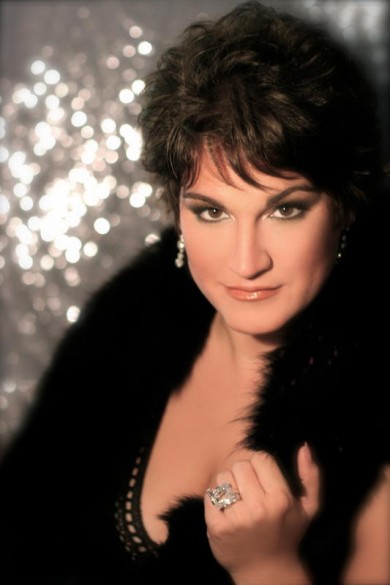Miami Lyric Opera’s “Tosca” proves solid vocally but lacks dramatic intensity

Jennifer Harris performed the title role in Puccini's "Tosca," presented by Miami Lyric Opera Saturday night.
Miami Lyric Opera’s production of Tosca is the most ambitious offering to date in the company’s eight seasons. Puccini’s setting of Sardou’s melodrama is Italian opera at its grandest in both musical and theatrical terms. Artistic director Raffaele Cardone has fielded a cast dominated by three principals that delivered much of the requisite vocal firepower but the combustible drama of this verismo classic sparked only fitfully on the stage of the Colony Theater in Miami Beach Saturday night.
As the painter and ill-fated revolutionary Cavaradossi, Enrique Pina was the most impressive of the leading singers. A student of the late tenor Franco Corelli, Pina has the kind of full throated, ringing Italianate voice that excites audiences. His Recondita armonia was suffused with passion, vaulting the rafters impressively. The heroic mettle of his cry of Vittoria! as news arrives of the victory of Napoleon’s army in the second act was thrilling. While poignantly phrased, E lucevan le stelle revealed some weakness in the Dominican tenor’s lower register but O dolci mani was sung with tenderness and beauty of timbre. Darmatically, Pina cut an impulsive, heroic figure, both ardent lover and true patriot.
Jennifer Harris was every inch the diva as Tosca, which was part of the problem. Her bright voice has an impressive edge that can cut through an orchestra at top volume but a fluttery upper register undermined some of the heroine’s big moments. Vissi d’arte was sung with considerable passion, Harris seated through most of the aria rather than laying on the floor as has become traditional in most production.
Yet too much of the time Harris just stood and sang, shortchanging theatrical values. The tension in the second act scene between Tosca and Scarpian was sporadic, Harris far too static and cool as she pleaded for her lover’s life. Even the murder of Scarpia was a surprisingly low-key affair.
Nelson Martinez was the oily, malevolent Scarpia with an imposing baritone voice; yet he shortchanged the Roman police chief’s lecherous instincts. Often stiff and immobile, this Scarpia was more cunning manipulator than evil murderer. What he lacked in blood-curdling dramatic energy, Martinez compensated with supple vocal dynamics, the voice alternately soft and caressing, then booming with ferocity.
Despite a promising, dark toned bass-baritone, Diego Baner was more comfortable as the jailer than as a matter-of-fact Angelotti. Jared Poroune was a vocally weak Spoletta, more wimp than sinister lieutenant. Jorge Arcila’s Sacristan was vocally smooth and subtly comedic but he telegraphed fear and terror when faced with Scarpia and his entourage. Erica Williams’ appealing lyric soprano spun the shepherd’s offstage song in the third act winningly.
Doris Lang Kosloff paced the opera with a sure hand, drawing surprising volume and nuance from the small 22-piece orchestra. A fine instrumental effort during the first two acts was seriously undercut by the ragged, out-of-tune playing of the strings at the onset of Act III, the solo cello barely rising above the amateur level.
Carlos Arditti’s sets were unusually sumptuous by company standards. Scarpia’s office in the Farnese Palace was suitably ornate and the ramparts of the Castel Sant’ Angelo austerely impressive. While the production musically and dramatically was not always coherently focused, the broad outlines of Puccini’s music drama were forcefully projected.
Miami Lyric Opera repeats Tosca 4 p.m. Sunday at the Colony Theater in Miami Beach. 305-674-1040 www.miamilyricopera.org.
Posted in Performances
Leave a Comment
Sun Feb 26, 2012
at 12:44 pm
No Comments




